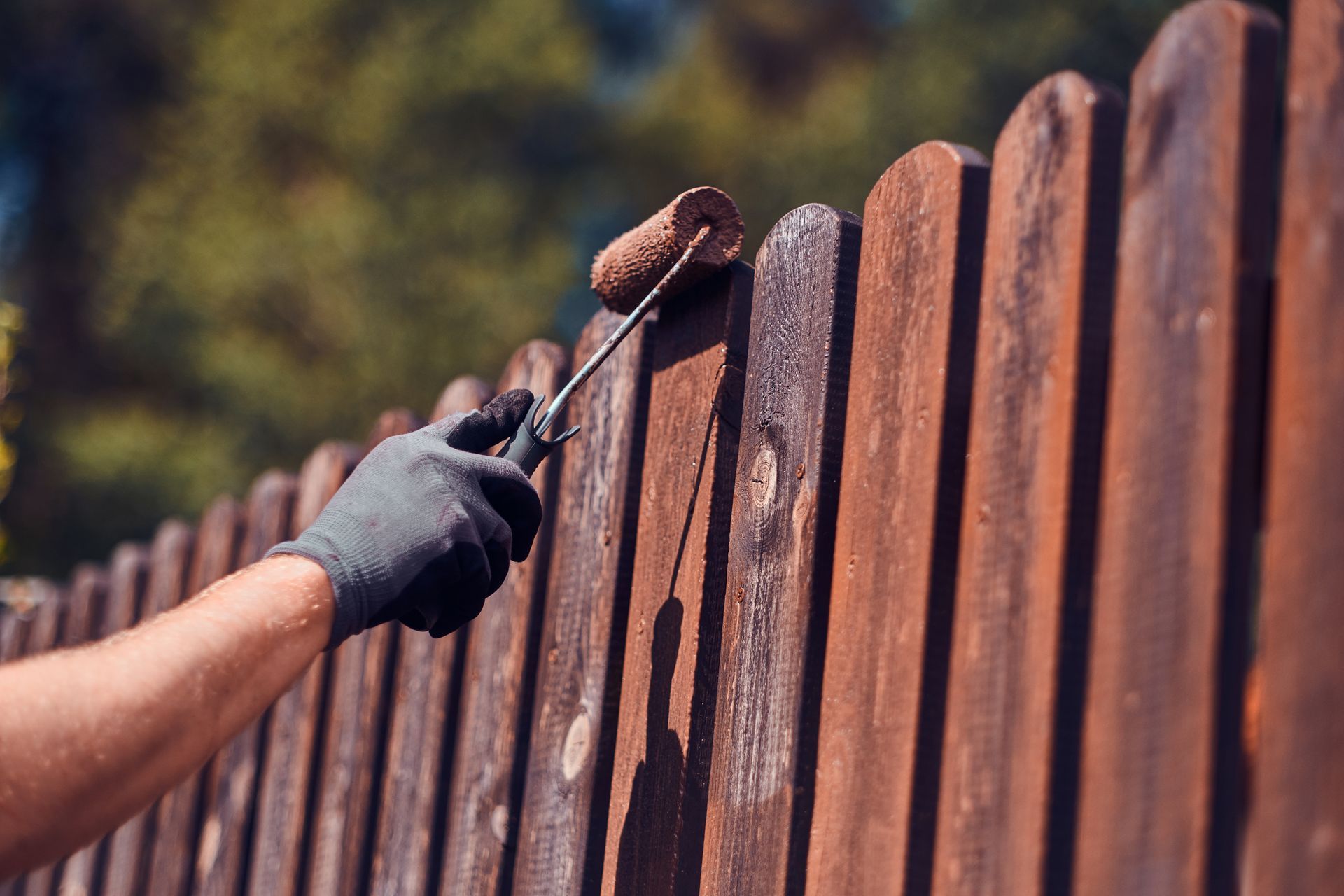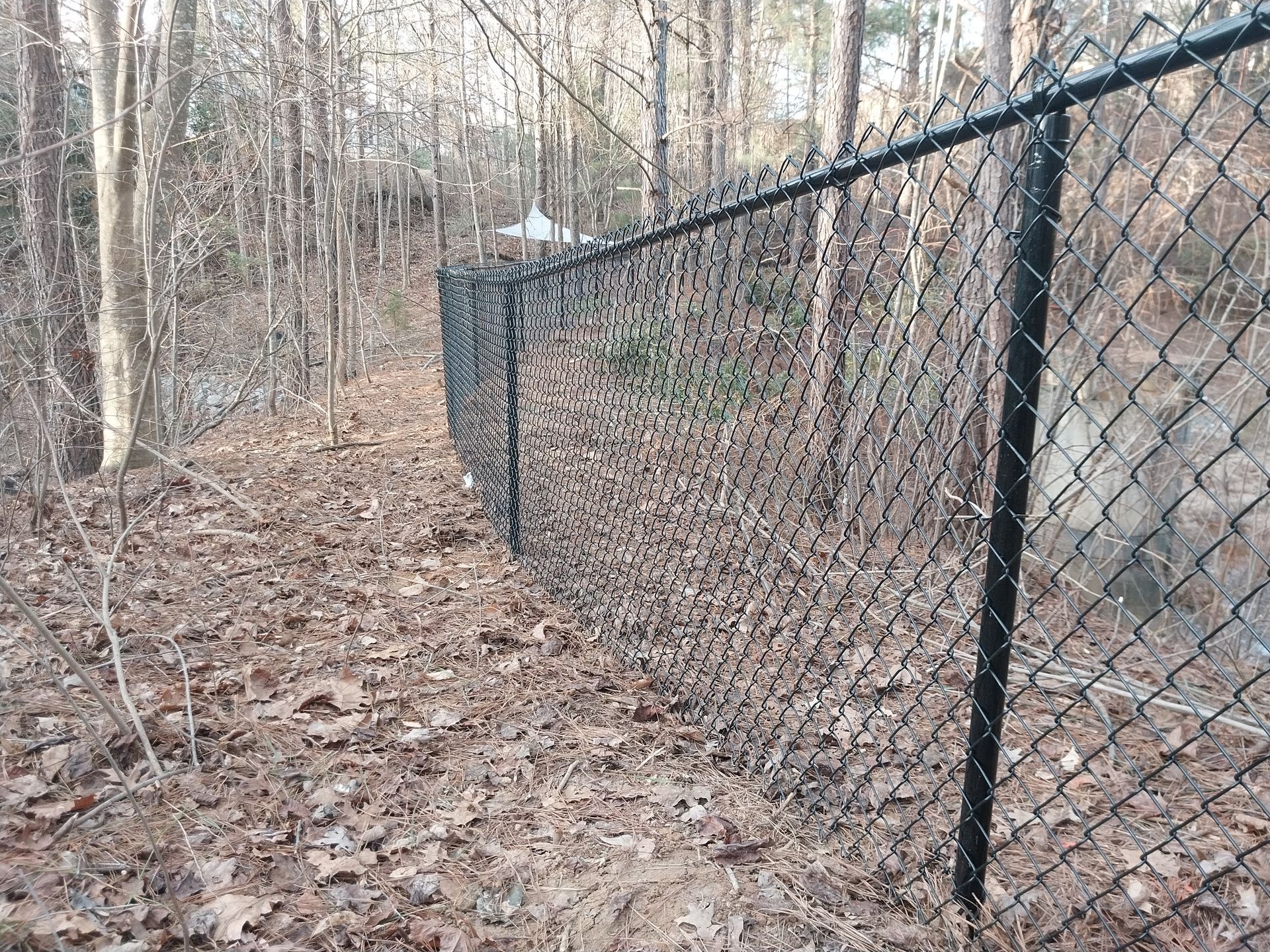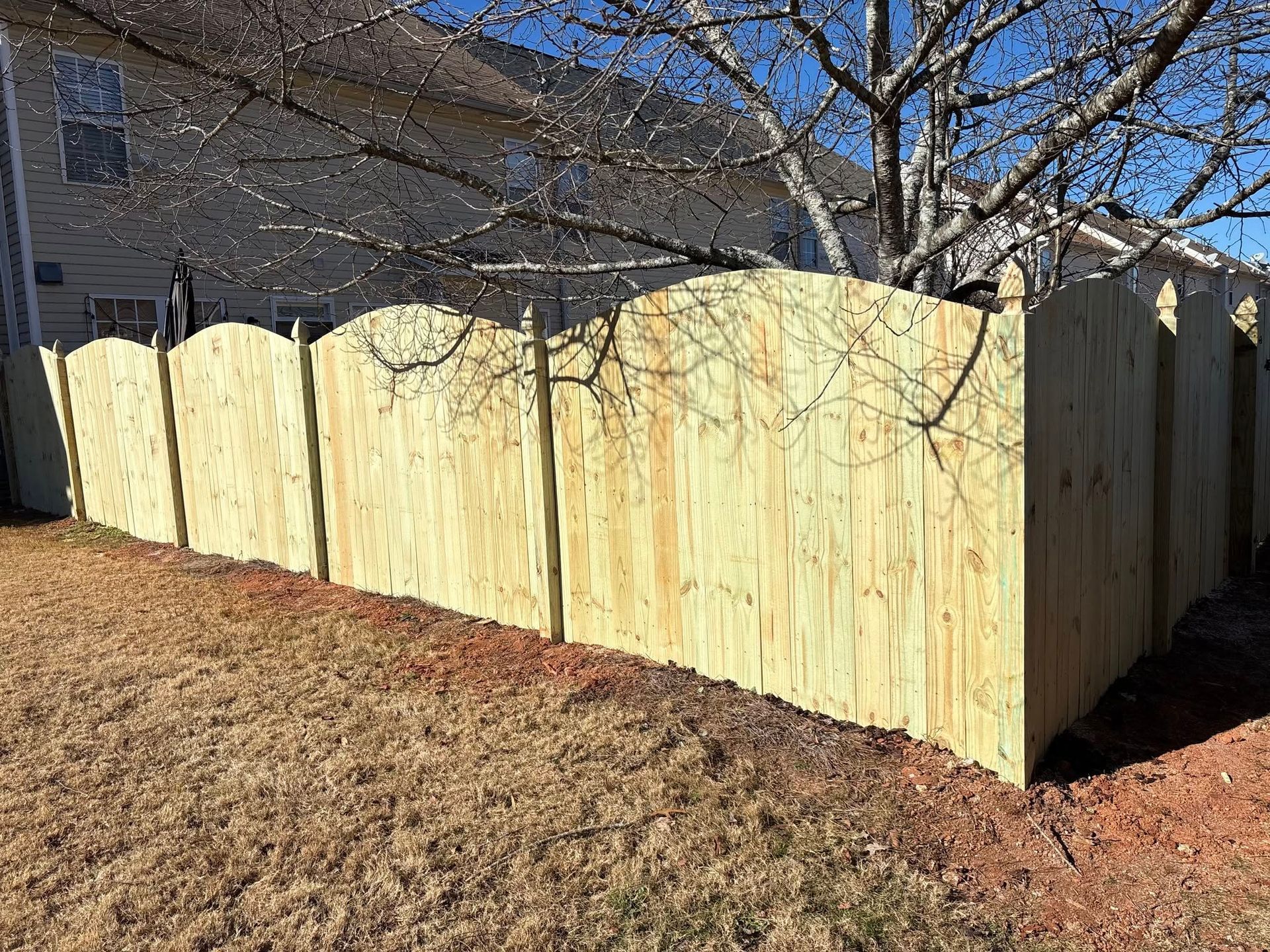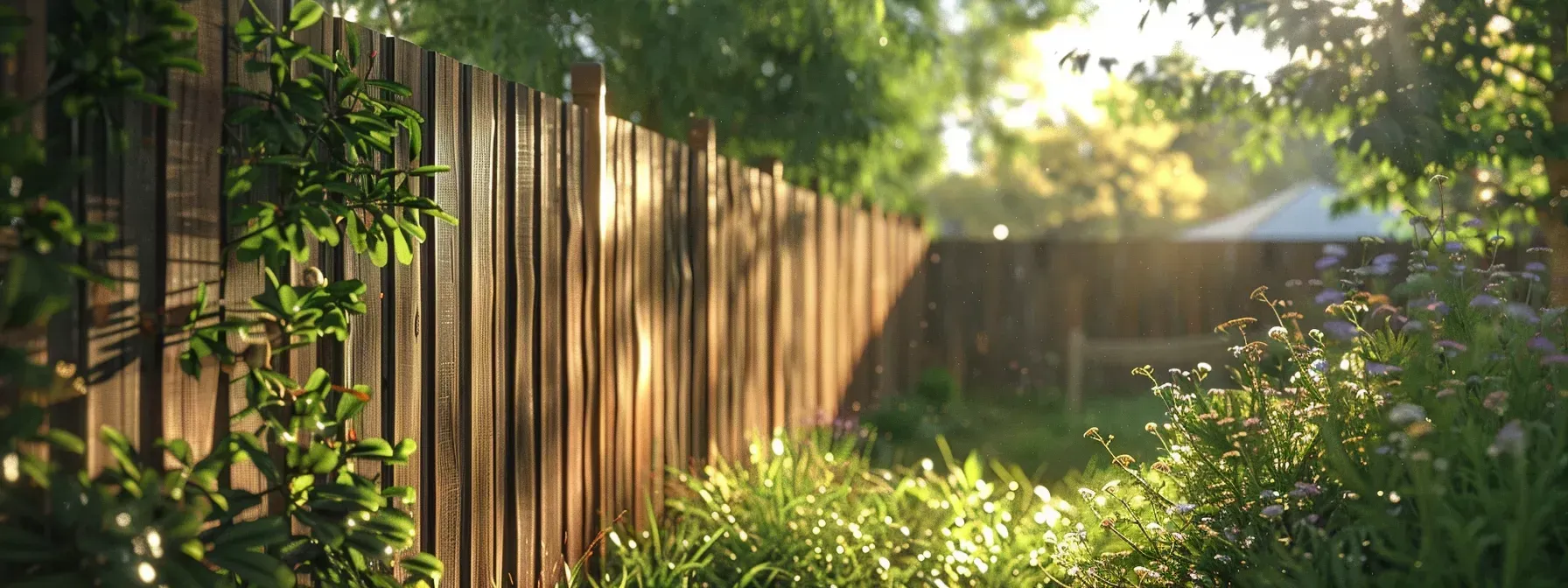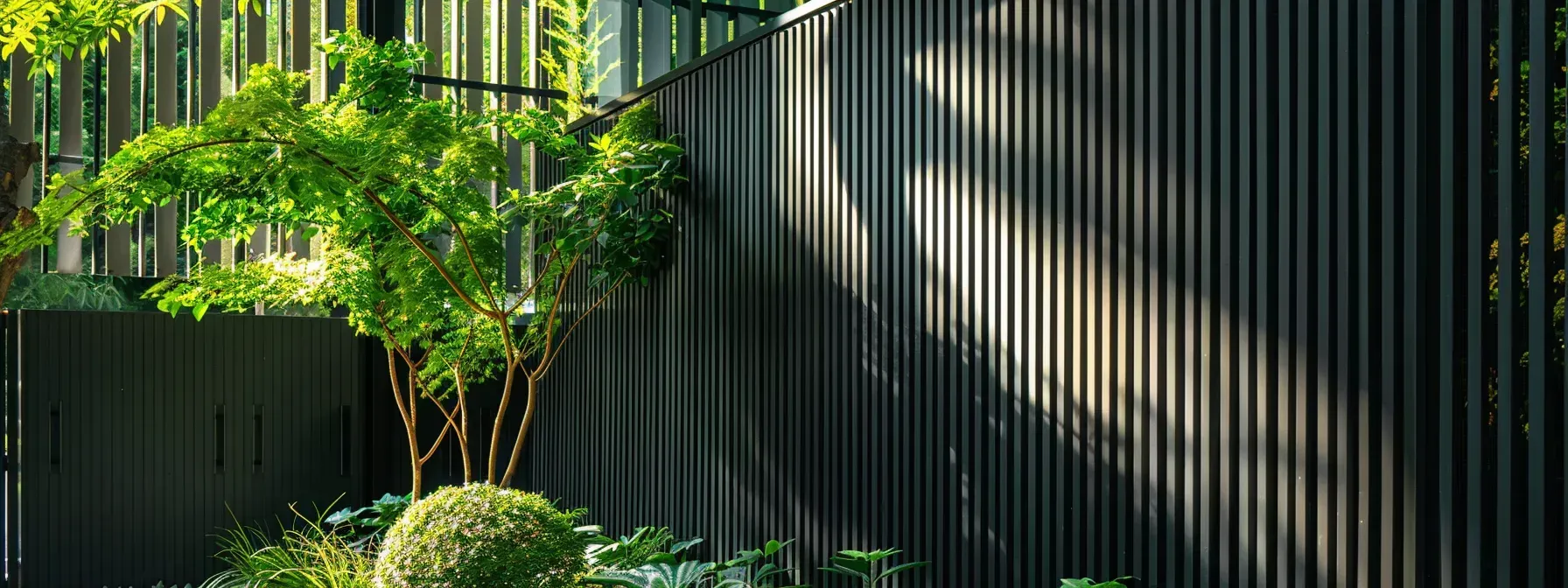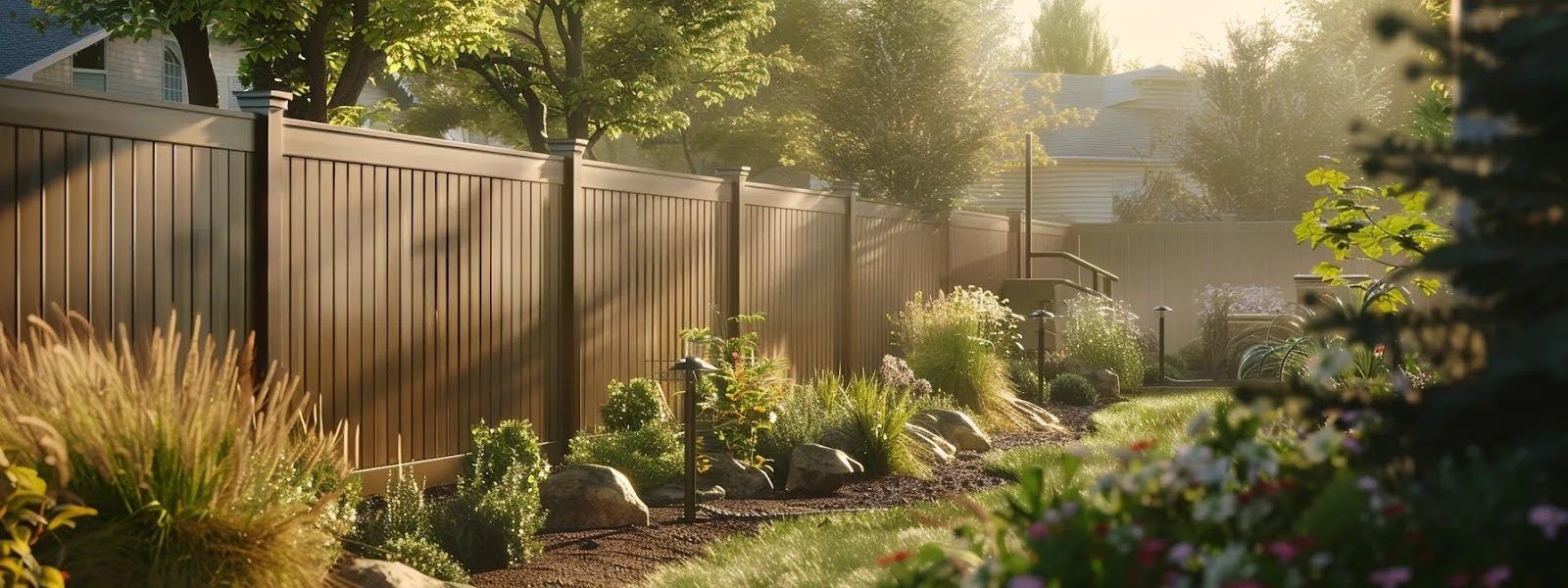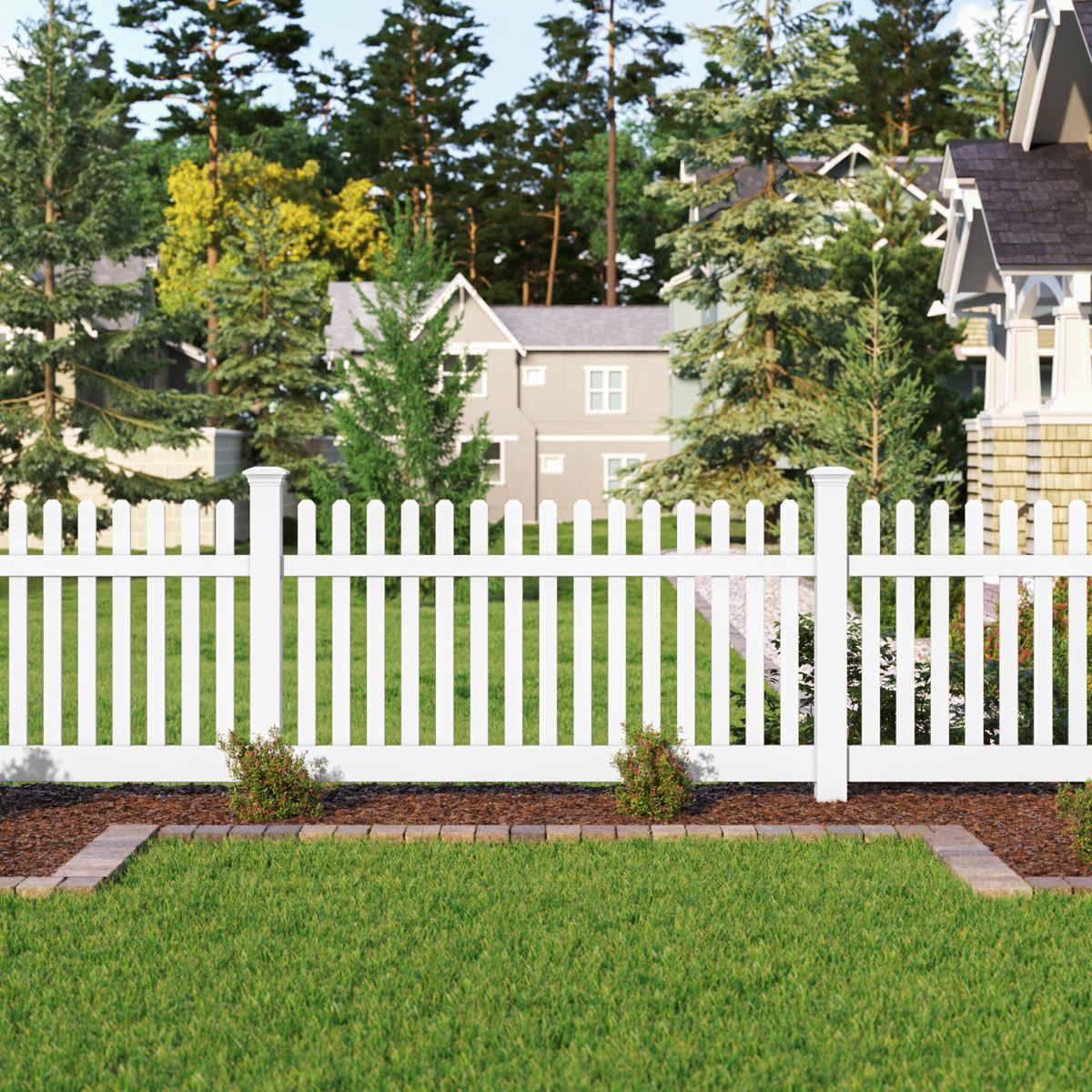8 Simple Steps to Keep Your Chain Link Fence Rust-Free
Chain link fences are a popular choice among homeowners and businesses. They offer a strong barrier while remaining relatively affordable. However, chain link fences, like any other metal product, are prone to rusting, which can compromise their integrity and detract from their appearance. Fortunately, you can take a few precautions to stop rust and make sure your fence lasts for a long time.
1. Choose Galvanized or Coated Chain Link for Fence Installation
The very foundation of rust prevention starts with the materials used in your fence installation. The standard chain link is made from steel wire. While strong, this untreated steel is prone to rusting when exposed to moisture. To combat this, opt for galvanized chain links.
This type of fencing features a zinc coating applied to the steel wire through a hot-dipping process. By preferentially rusting itself, the zinc serves as a sacrificial barrier, shielding the steel beneath. This significantly extends the lifespan of your fence.
2. Inspect and Repair Promptly
Regular inspection is vital for maintaining the health of your chain link fence. Look for any signs of rust, which may appear as reddish-brown spots or flakes on the metal surface. Early detection is critical, as even small areas of rust can quickly spread and jeopardize the structural integrity of your fence.
Upon discovering signs of rust, address the issue promptly. For minor surface rust, a wire brush and rust-inhibiting paint can be sufficient. However, for more extensive rust damage, replacing the affected section of the fence might be necessary.
3. Keep Vegetation Away
The area surrounding your chain link fence should be free of vegetation, including trees, shrubs, and climbing plants. Overgrown vegetation traps moisture near the fence, creating an ideal environment for rust to develop. Additionally, plant roots can grow underneath the fence, potentially pushing up the posts and causing misalignment.
As a general rule, maintain a clearance of at least 12 inches between the fence and any vegetation. For larger trees, a wider clearance might be necessary. Regularly trim back any plants that encroach on this designated space. This practice not only promotes good air circulation around the fence but also improves overall property aesthetics.
4. Maintain Proper Drainage
Ensuring proper drainage around your chain link fence is crucial for preventing rust. Water pooling near the base posts creates a stagnant environment that speeds up rust formation. Here are some tips to promote proper drainage:
- Grading the Soil: If the ground slopes naturally away from the fence, you're already in good shape. However, if the soil slopes towards the fence, consider grading it slightly to create a downward slope that directs water away from the base.
- Adding Gravel: Another effective method is to add a layer of gravel, approximately 2-3 inches deep, around the base of the fence posts. The gravel allows water to drain freely, preventing it from accumulating around the posts.
By implementing these simple drainage solutions, you can significantly reduce the risk of rust development on your chain link fence.
5. Protect Against Scratches
Scratches on the galvanized coating or vinyl layer of your chain link fence can expose the underlying bare steel to moisture, accelerating the rusting process. Here are some ways to minimize scratches:
- Take caution when using gardening tools near the fence. Make sure they do not come into contact with the metal surface.
- If you plan on attaching anything to your fence, such as decorations or plants, use protective padding or rubber gaskets between the object and the fence to prevent scratching.
By being mindful of these practices, you can help maintain the integrity of the protective coating on your chain link fence.
6. Apply a Protective Coating
For galvanized chain link fences in areas with particularly harsh weather or those that are simply nearing the end of their lifespan, applying an additional protective coating can provide an extra layer of defense against rust.
Choosing the Right Coating
Several options exist for protective coatings, each with its own advantages:
- Rust-Oleum® Chain Link Fence Enamel: This oil-based enamel paint offers excellent rust protection and comes in a variety of colors.
- Epoxy Paint: Epoxy paint provides superior durability and adhesion compared to traditional enamel paints.
- Vinyl Wrap: A vinyl wrap offers a unique approach. It comes in various colors and textures, allowing you to completely transform the look of your fence while simultaneously providing a layer of protection against rust.
Consulting a Professional
Before applying any protective coating, it's crucial to consult with a professional fencing contractor. They can assess the condition of your fence, recommend the most suitable coating type, and provide guidance on proper application techniques. Improper application can sometimes trap moisture beneath the coating, actually accelerating the rusting process.
7. Avoid Harsh Cleaning Agents
While regular cleaning helps maintain the appearance of your chain link fence, it's important to use the right cleaning methods. Harsh cleaning agents, such as abrasive cleaners or strong detergents, can strip away the protective zinc coating on galvanized fences or damage the vinyl layer on vinyl-coated fences. This can leave the underlying metal exposed and susceptible to rust.
Opting for Mild Solutions
For routine cleaning, a simple solution of mild dish soap mixed with warm water is usually sufficient. Use a soft sponge or brush to gently scrub the fence surface. Rinse thoroughly with clean water afterward. Avoid using high-pressure washers, as the strong water jet can damage the fence material.
8. Create a Regular Maintenance Schedule
The key to preventing rust on your chain link fence lies in proactive maintenance. Here's how to establish a regular maintenance routine:
- Seasonal Inspections: Conduct a thorough inspection of your fence at least twice a year, ideally before spring and fall. Look for signs of rust, loose fittings, or any damage to the posts or mesh.
- Cleaning Schedule: Depending on your environment, schedule regular cleanings to remove dirt, debris, and any organic matter that might trap moisture. A quick cleaning every 1-2 months is recommended, with more frequent cleaning necessary in areas with high humidity or pollution.
- Addressing Issues Promptly: Don't wait to address any problems you discover during inspections. Fix loose fittings, repair minor rust spots, or trim back encroaching vegetation as soon as possible. By addressing issues promptly, you can prevent them from escalating into bigger problems.
The Benefits of Professional Maintenance
While you can certainly perform basic maintenance tasks yourself, consider scheduling a professional inspection and cleaning from a Cumming fencing installation expert like Down to Earth Fence every 1-2 years. We have the expertise and tools to thoroughly assess the condition of your fence, identify potential problems, and perform any necessary repairs to ensure its longevity.
Conclusion
By following these simple yet effective strategies, you can extend the lifespan of your chain link fence and protect it from the damaging effects of rust. Remember, a well-maintained chain link fence not only provides lasting security but also enhances the overall aesthetics of your property.
Ready to Invest in a Long-Lasting Chain Link Fence?
At Down to Earth Fence, we specialize in high-quality chain link fence installation and repair services. Our experienced team can help you choose the right type of fence for your needs, install it professionally, and provide expert guidance on proper maintenance techniques. We are committed to ensuring your chain link fence provides security and beauty for years to come.
Contact Down to Earth Fence Today!
Don't let rust compromise the integrity and appearance of your chain link fence. Contact Down to Earth Fence today for a free consultation. Our friendly and knowledgeable team is here to answer your questions and help you create a secure and beautiful fencing solution for your property. We look forward to serving you!

